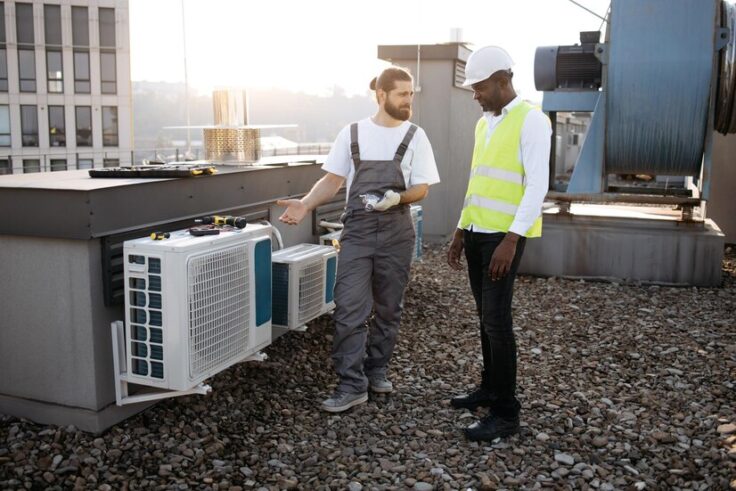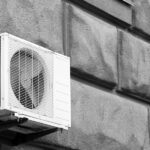
Understanding Emergency HVAC Services Basics
Emergencies can strike at any moment, and when it comes to your HVAC system, immediate attention is crucial. Understanding the basics of emergency HVAC services can save you from discomfort and prevent further damage to your system. Whether it’s a sudden breakdown in the middle of a heatwave or a malfunctioning heater during a cold snap, knowing what to expect and how to respond can make all the difference. This guide covers the essentials of emergency HVAC services, ensuring you’re prepared for any unexpected HVAC issues.
What Constitutes an HVAC Emergency?
An HVAC emergency typically involves any situation where your heating, ventilation, or air conditioning system ceases to function correctly, posing immediate discomfort or safety risks. Examples include a complete system breakdown during extreme weather conditions, refrigerant leaks, electrical issues causing potential fire hazards, or the failure of critical components like the furnace or air conditioner. These situations demand swift professional intervention to restore comfort and safety.
Additionally, unusual noises, strange odors, or visible damage to the HVAC unit can also signify an emergency. Ignoring these signs can lead to more severe damage and costly repairs. Recognizing these urgent scenarios ensures timely action, preventing prolonged discomfort and potential health hazards.
Common Emergency HVAC Issues
Emergency HVAC issues can arise unexpectedly, causing significant discomfort and potential damage if not addressed promptly. Here are four common emergency HVAC problems that homeowners often encounter:
- System Breakdown During Extreme Weather: Whether it’s a blazing summer or a frigid winter, a complete HVAC system failure during extreme weather conditions can be critical, requiring immediate attention to restore comfort and safety.
- Refrigerant Leaks: Leaking refrigerant not only reduces the efficiency of your cooling system but can also pose environmental and health risks. This issue needs urgent repair to prevent further complications.
- Electrical Failures: Problems like tripped breakers, faulty wiring, or complete electrical failures can cause your HVAC system to stop working and may even pose fire hazards, necessitating immediate professional intervention.
- Frozen Coils: Frozen evaporator or condenser coils can halt the functioning of your HVAC system, often caused by airflow issues or refrigerant problems. This issue needs swift resolution to prevent long-term damage to the system.
Signs You Need Emergency HVAC Services
Recognizing when to seek emergency HVAC services is crucial for maintaining comfort and preventing further damage to your system. Here are four signs that indicate you may need immediate professional assistance:
- Complete System Failure: If your HVAC system stops working entirely, especially during extreme temperatures, it qualifies as an emergency requiring urgent attention to restore functionality.
- Burning Smells or Smoke: Any unusual odors, particularly burning smells or visible smoke coming from your HVAC unit, indicate a potential fire hazard. Immediate professional intervention is necessary to ensure safety.
- Noisy or Unusual Sounds: Grinding, squealing, or banging noises coming from your HVAC system can indicate serious mechanical issues that need to be addressed promptly to prevent further damage.
- Refrigerant Leaks: Leaking refrigerant can not only impact your system’s performance but also pose health risks and environmental concerns. Addressing this promptly is crucial to prevent extensive damage and ensure efficient cooling.
Immediate Steps to Take During an HVAC Emergency
During an HVAC emergency, taking immediate action can help mitigate damage and restore comfort quickly. Here are essential steps to take:
- Turn Off the System: If you notice any unusual smells, sounds, or smoke, shut off your HVAC system immediately at the thermostat. This prevents further damage and reduces safety risks.
- Check the Circuit Breakers: Ensure that none of the circuit breakers connected to your HVAC system are tripped. Reset any tripped breakers cautiously and only once to prevent electrical issues.
- Inspect for Visible Damage: Look for any visible signs of damage, such as leaks, broken parts, or loose connections. If it’s safe to do so, try to identify and mitigate the source of the problem.
- Contact Emergency HVAC Services: Call a licensed HVAC professional who offers emergency services. Explain the situation clearly and follow any instructions they provide while waiting for their arrival.
Benefits of Emergency HVAC Services
Emergency HVAC services offer several crucial benefits that ensure your comfort, safety, and peace of mind during unexpected system failures. Here are the key advantages:
- Immediate Response: Emergency HVAC services provide prompt response times, often available 24/7. This quick reaction ensures that your HVAC issues are addressed swiftly, minimizing discomfort caused by extreme temperatures.
- Expertise and Experience: HVAC professionals specializing in emergency services are trained to handle urgent situations efficiently. They have the expertise to diagnose problems accurately and implement effective solutions to restore your system’s functionality.
- Prevent Further Damage: Timely intervention from emergency HVAC services helps prevent minor issues from escalating into major problems. This proactive approach reduces the risk of extensive repairs and associated costs.
- Ensure Safety: Issues like electrical malfunctions or gas leaks can pose significant safety hazards. Emergency HVAC services prioritize safety protocols, ensuring that repairs are conducted safely and effectively.
- Peace of Mind: Knowing that professional help is just a phone call away can provide peace of mind, especially during severe weather conditions or unexpected system failures.
How to Choose the Right Emergency HVAC Service Provider
Choosing the right emergency HVAC service provider ensures that you receive timely and reliable assistance during critical situations. Here are essential considerations to help you make an informed decision:
Firstly, verify credentials and licenses. Ensure the company is licensed and certified to operate in your area, guaranteeing they meet local regulations and standards. Look for affiliations with reputable industry associations, which can indicate their commitment to professionalism and quality service.
Secondly, assess their availability and response time. Opt for a provider offering 24/7 emergency services with a rapid response capability. Inquire about their service area coverage to confirm they can reach your location promptly when emergencies arise. Additionally, read customer reviews and testimonials to gauge their reliability, customer satisfaction levels, and ability to resolve HVAC issues effectively under pressure.
Preventing HVAC Emergencies
Preventing HVAC emergencies through proactive maintenance can save you from unexpected disruptions and costly repairs. Regularly scheduled maintenance by a licensed HVAC technician is essential. They can inspect and tune-up your system, ensuring it operates efficiently and identifying potential issues before they escalate into emergencies.
Additionally, homeowners can take proactive steps such as regularly changing air filters, keeping outdoor units clear of debris, and monitoring thermostat settings to prevent strain on the HVAC system. Addressing minor issues promptly, such as unusual noises or fluctuations in performance, can also prevent larger problems down the road.
Educating yourself about your HVAC system’s maintenance needs and scheduling routine inspections can significantly extend its lifespan and reduce the likelihood of breakdowns, ensuring continuous comfort and efficiency in your home.
Cost of Emergency HVAC Services
The cost of emergency HVAC services can vary based on several factors, including the nature of the emergency, the extent of the damage, and the service provider’s pricing structure. Emergency service calls often incur higher costs due to the immediate response required outside of regular business hours, such as evenings, weekends, or holidays. Providers may charge a premium for these urgent calls to compensate for their availability and rapid response times.
Additionally, the total cost can include fees for diagnostics, labor, replacement parts, and any necessary repairs. It’s essential to inquire about pricing details upfront, including any potential additional charges, to avoid surprises. Some HVAC service providers offer service contracts or maintenance plans that may include discounted rates for emergency services, providing a cost-effective option for homeowners seeking peace of mind and reliable emergency assistance.
Technology in Emergency HVAC Services
Technology plays a crucial role in enhancing emergency HVAC services, improving response times, and ensuring efficient problem resolution. Advanced diagnostic tools and mobile applications enable HVAC technicians to diagnose issues quickly and accurately on-site. These tools can identify faults in HVAC systems, such as electrical malfunctions or refrigerant leaks, allowing technicians to address them promptly.
Moreover, smart HVAC systems and remote monitoring capabilities enable proactive maintenance and real-time monitoring of system performance. Technicians can remotely access system data, identify potential issues before they escalate into emergencies, and even perform diagnostics without physically being on-site, saving time and minimizing disruption for homeowners.
By leveraging technology, emergency HVAC services can deliver faster responses, more precise diagnostics, and ultimately, enhanced customer satisfaction by ensuring systems operate reliably and efficiently, especially during critical situations.
Future Trends in Emergency HVAC Services
Future trends in emergency HVAC services are likely to focus on integrating advanced technologies to improve response times, efficiency, and customer experience. One emerging trend is the use of artificial intelligence (AI) and machine learning algorithms to predict HVAC system failures before they occur. AI can analyze data from sensors and historical maintenance records to identify patterns and potential issues, allowing for proactive maintenance and preemptive repairs.
Furthermore, the adoption of Internet of Things (IoT) technology enables smart HVAC systems that can self-diagnose and communicate issues directly to service providers. IoT-enabled devices can monitor performance metrics in real-time, providing continuous updates to technicians and enabling remote troubleshooting capabilities.
As HVAC systems become smarter and more interconnected, future emergency services are poised to be more predictive, proactive, and efficient, minimizing downtime and optimizing system performance to meet the evolving needs of homeowners and businesses.
Understanding the basics of emergency HVAC services is essential for maintaining comfort and safety in your home or business. Knowing when to seek professional help can prevent costly repairs and ensure your HVAC system operates efficiently year-round. For reliable emergency HVAC services in Sterling, VA, trust Cool Factory, Inc.
Our team is available 24/7 to address your HVAC emergencies promptly and effectively. Don’t hesitate to contact us at (703) 713-5113 for immediate assistance or visit our website to learn more about how we can safeguard your indoor comfort with our expert services.






